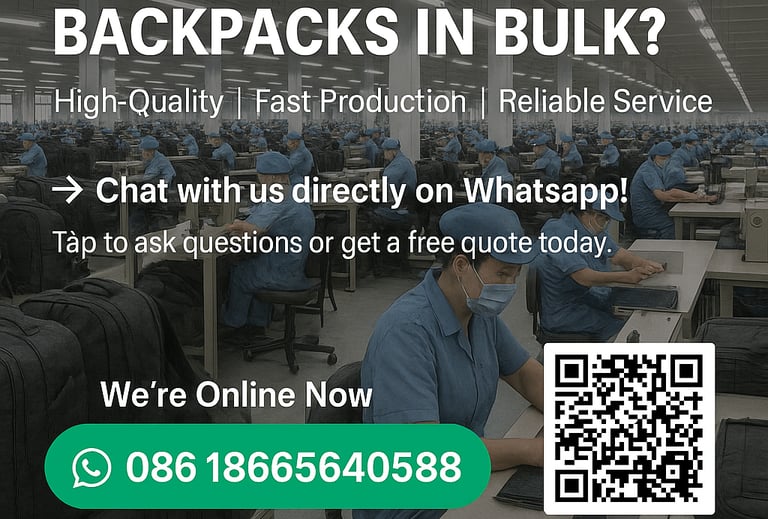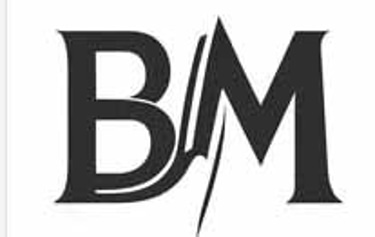How to Choose Reliable Private Label Backpack Manufacturers: Honest Advice from a Veteran in Backpack Sourcing
Friend, if you’re thinking about launching your own backpack brand—or trying to find a standout custom backpack for your clients—congratulations! You’re already standing at the starting line of success. But the next step—finding the factory that can actually bring your ideas to life—is the real challenge. This isn’t just about picking the lowest quote; there’s a lot more to it than meets the eye. Drawing from my years navigating the global supply chain, I want to share some “down-to-earth” methods that can help you avoid pitfalls and find the right “match.”
MANUFACTURING & SUPPLY CHAIN


1. Get Crystal Clear on Your Dream Backpack
Before you contact any factory, pour yourself a cup of tea, sit down, and visualize your backpack in your mind.
Who will carry it?
A busy professional carrying a laptop between offices? A weekend adventurer hitting the trails? Or a student with books and energy to spare? Different users expect very different things from a backpack.What’s it made of—its “bones and flesh”?
Size, shape, fabric (waterproof? durable?), number of pockets, zipper brands (YKK is always a safe bet!), comfort level… all these details directly affect cost and quality.How personalized do you want it?
Just an embroidered logo? Or custom inner lining, branded zipper pulls, even special packaging? The higher the level of customization, the more technical skill and cost the factory must invest.
Once you’ve figured all this out, you’ll have a clear picture in your head. When you talk to factories, you won’t be a clueless beginner—you’ll be a prepared professional. This saves you tons of time and helps you find a factory that truly understands your vision.
2. What Makes a Factory Worth Trusting? My Non-Negotiables
From years of experience, I’ve noticed that truly reliable manufacturers share certain qualities:
They’re seasoned pros, not rookies.
A factory with years of OEM/ODM experience won’t just follow your drawings blindly. They’ll give suggestions like:“This fabric might feel stiff with this design—we have a better option.”
“Your structure is a bit complex—we can tweak the process to maintain aesthetics while saving cost.”
They turn your abstract ideas into tangible, market-ready products.Quality is their lifeline.
It’s not enough to say “we have good quality”—you need proof. From incoming material checks (IQC), in-process inspections (IPQC), to final inspections before shipment (FQC/OQC), every step matters. Do they have international certifications like ISO? Don’t skip this—it’s a firewall protecting your brand. One quality mishap could wipe out all your effort.Flexibility is key.
Your first order may be a small trial batch, then scale up if successful. A good factory understands your growth and adapts—they won’t ignore you because your initial quantity is small, nor panic when a big order comes in.Communication, communication, communication!
Cross-border collaboration is tricky—miscommunication is the biggest risk. A good factory’s sales or project manager acts like your eyes and ears, keeping you updated on samples, pricing, and production progress. Problems can be solved early rather than discovering “this isn’t what I wanted” after everything is made. Clear communication saves time, money, and headaches.After-sales service is the real test.
Shipping products doesn’t end the partnership. If a quality issue arises, do they dodge responsibility or solve it proactively? Make sure you clarify return policies and warranty terms upfront—it protects both you and your customers’ trust in your brand.
3. How I Personally Vet Factories
I never just take a factory at their word or trust glossy photos. Here’s how I do it:
Visit if you can, or do a virtual tour.
You’ll get a feel for their production environment, equipment quality, workshop organization, and staff professionalism. This gives you a firsthand sense of their management and production capability.Samples, samples, samples!
There’s no better way to assess workmanship and material quality. Touch the fabric, test the zippers, inspect stitching. Test rigorously—even take things apart if needed. This is where the real skill and quality show.Check their track record.
Ask for similar past projects or client testimonials. How have they handled previous clients? This reveals reliability and problem-solving ability.Be upfront about policies.
Before signing anything, clarify after-sales service and warranty terms. If something goes wrong, who takes responsibility? Don’t wait until a problem arises to find out—it can turn into a nightmare.
4. Tips for Smooth Collaboration
Even with the perfect factory, small issues can arise. Here’s what I do to keep things running smoothly:
Contracts matter.
Who owns the design? What’s the delivery date? How is confidentiality handled? Payment terms? Write it all clearly—no ambiguity.Payment schedule protects you.
Usually, a deposit upfront, with balance paid according to production milestones (e.g., before mass production completion or shipment). This reduces financial risk.Stay in touch—don’t disappear.
Regularly check in, even just a quick message. If designs need tweaks or minor issues arise during production, early communication prevents bigger problems. Trust builds over time, and communication is the bridge.
Remember: choosing the right manufacturer is like picking a reliable business partner. Invest time and effort into finding and nurturing that relationship, and it can bring unexpected rewards for your brand.
Wishing you luck in finding your “perfect partner”!
